Asian Infrastructure Forum workshop 4- Building Infrastructure for Asian Cities (June 26, 1500-1630), Regal 3, Trident
Objectives
- Catalyze discussions and highlight the vision, strategy, opportunities, and challenges of building 21st century sustainable cities in Asia.
- Highlight the current trends in developing sustainable cities.
- Cover discussions over demonstrated success and takeaways from Hong Kong and Singapore in (1) building new growth engines (2) resolving urban challenges and (3) enhancing urban mobility.
- Consider initiatives taken in India including discussion on the Smart Cities Mission and the development of Urban Mobility (Metro) projects.
- Explore the future of sustainable cities with the help of innovative technologies and financing.
Background
By 2025 it is estimated that 340 million people (which is almost the same population size as the US) will move to cities in Asia alone. This will fuel tremendous growth, with the top 600 cities in Asia driving a US$22tn increase in GDP by 2025.
Increasing infrastructure financing needs to reap the benefits of urbanization and to mitigate the burdens of urbanization: Urbanization is raising economic productivity across the countries but it also requires investments into the urban development to realize the gains: migration to cities by 2025 will require 330 million more homes, US $1.3 trillion annual spending on transportation systems and US$ 2.0 trillion annual investment in utilities. Infrastructure investment in Asia is a trillion-dollar market and the forecasted urban infrastructure need of selected countries in Asia will grow from US$810 billion to US$1.4 trillion by 2025, with an annual growth rate of 7%.
Green and smart technologies: If coupled with innovative financing and incentives, can unlock sustainable and smart solutions to address some of the biggest challenges for the current and upcoming cities. Singapore, amongst many other cities, has successfully used many new green and smart initiatives to enhance the suitability. The Smart Nation is Singapore’s vision to be an economically competitive global city and a liveable home. In India, the Government of India has initiated the Smart Cities mission with a focus on making urban areas more efficient and to provide necessary basic amenities on a sustained basis. In Hong Kong, MTR Corporation has showcased the success of an economic sustainable “rail + property” metro model. It has also launched its Hong Kong Smart City Blueprint with a vision of strong economy and high quality of living. All these examples shed light upon the solutions and opportunities for other emerging Asian cities.
Building sustainable cities required an integrated approach and synergies between different projects like urban mobility, climate resilience infrastructure, water & waste systems, clean energy, economic development zone, housing and technology infrastructure among others. It is inevitably challenging but given the surging needs of urbanization, this workshop provides a platform for the necessary exchange of ideas and know-how we need to develop solutions.
Possible Discussion Topics
- The workshop aims to present and discuss on the current trends in developing and improving sustainable cities in Asia from following perspectives:
° Governance
° Policies and Strategies
° Infrastructure Investment - Learnings from demonstrated success and challenges from the selected Asian cities
- How to overcome challenges and utilize green/smart technologies and innovative finance to build 21st century sustainable cities in Asia
Speakers
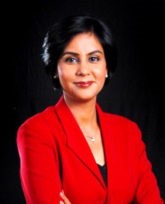
Ms. Manisha Natarajan - Host & Editor-in-charge, CNBC TV 18 (Moderator)
Manisha Natarajan currently hosts a weekly show “Urban Reality” on India’s most watched Business News channel, CNBC TV 18. She is editor-in-charge of Urban Development and Real estate for the Network 18 group which includes Hindi Business channel (CNBC Awaaz) and Financial Website (Moneycontrol), both market leaders in the country. Manisha learnt the ropes of television journalism as a reporter for BBC World’s ‘Moneywise’ and ‘India Business Report’. She has anchored over 2000 hours of live business news, including key events such as the Union Budget, Economic Survey, Credit Policy and Tax Roundtables. She’s also been an in between columnist with Indian Express, Mint and ndtv.com. Manisha is passionate about Cities, Sustainability & Affordable Housing, all of which are key growth areas for India.
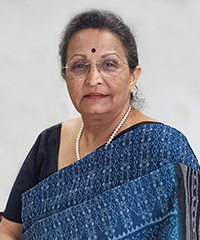
Ms. Renu Sud Karnad-Managing Director, HDFC Limited
Renu Sud Karnad has been spearheading HDFC’s operations and expansion. Being HDFC’s brand custodian, she is the guiding force behind HDFC’s communication strategy and public image.
She is a Parvin Fellow of Woodrow Wilson School of International Affairs, Princeton University, U.S.A.
Besides HDFC Group, she is on the Indian boards of ABB, Bosch, Feedback Ventures, Indraprastha Medical Corporation, Maruti Suzuki and International board of WNS.
She has served as the President of the International Union for Housing Finance and as Director, Asian Real Estate Society.
Her recognitions include "Outstanding Woman Business Leader" from many media organizations, featured amongst the list of '25 top non-banking women in finance' by U.S. Banker magazine in 2008, Adjudged among the 'Top Ten Powerful Women to Watch Out for in Asia' by Wall Street Journal Asia in 2006.

Mr. Loh Ah Tuan-Former Deputy CEO, National Environment Agency, Singapore
Loh Ah Tuan joined the Singapore Ministry of the Environment and Water Resources some 35 years ago, retiring in 2007. He served as the Director-General for Environmental Protection (DGEP) and Deputy Chief Executive Officer (DCEO) of the National Environment Agency (NEA), and held portfolios in environmental planning, environmental pollution control and management, integrated solid waste management, sewerage management, wastewater treatment as well as environmental public health. He was also involved in many notable environmental projects, including privatization of collection and disposal of municipal solid waste; planning, construction and operation & maintenance of WTE (waste-to-energy) plant; and offshore sanitary landfill. For his role in the cleaning of Singapore River, Loh Ah Tuan was among 10 Singaporeans awarded a Gold Medal by then Singapore founding Prime Minister, Mr Lee Kuan Yew.
As the DCEO and DGEP, Loh Ah Tuan was instrumental in ensuring that Singapore enjoys clean air, clean water and clean land as well as high standards of public health. He was also at the forefront of the formulation of the Singapore Green Plan 2012, a blueprint for environmental sustainability. Beyond Singapore, he was the Environment lead negotiator for the US-Singapore Free Trade Agreement in 2004, Chairman of ASEAN Working Groups on Transboundary Pollution, Environmentally Sustainable Cities, Multilateral Environmental Agreement. He was also the Co-Chairman of the Malaysia-Singapore Joint Committee on the Environment, Indonesia-Singapore Joint Committee on the Environment and Brunei-Singapore Joint Committee on the Environment. For his 35-year service, Loh Ah Tuan was awarded the Singapore Public Service Medal (Gold) in 2007.
Since his retirement from the NEA in August 2007, Loh Ah Tuan had served as a Director/Consultant to Keppel Integrated Engineering Ltd till May 2013, and a Consultant in Keppel Seghers Engineering Singapore Ltd till 2016. During the period, he was involved in WTE plant and wastewater plant projects in China, Middle East and ASEAN countries.
In 2015, Loh Ah Tuan led a Singapore team and conducted a consultancy study on the Framework of Integrated Solid Waste Master Plan for Andhra Pradesh. Since 2015, Loh Ah Tuan has been involved in the master planning of environmental infrastructure, which include water, wastewater, solid waste, flood alleviation and power transmission lines infrastructure for Amaravati City.
Loh Ah Tuan is currently a member of the expert panel in Singapore Centre for Liveable Cities.
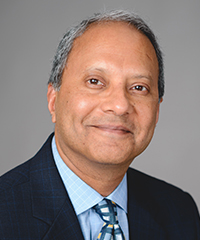
Mr. Ram Mahidhara-Chief Investment Officer, IFC
Ram Mahidhara is Chief Investment Officer, Infrastructure and Natural Resources at IFC, based in Washington DC, and has nearly 25 years of infrastructure experience. Among other projects, Ram currently oversees the implementation of a US$2 billion, externally-financed, debt facility mobilized to supplement IFC’s own infrastructure financing. Between April 2015 and Sept 2017, Ram was based in Hong Kong, providing dedicated coverage to selected, Asia-based infrastructure clients, whose total revenues exceeded US$100 billion. From 2006 to 2015, Ram was based in Johannesburg, where he initially led new business development and, between 2010 and 2015, managed IFC’s assets in Infrastructure, TMT and Natural Resources in sub-Saharan Africa. In that latter capacity, Ram oversaw a portfolio of over 100 assets with about US$2.7 billion of investments for IFC's own account across 27 countries, and was involved with origination, asset management, sales and workouts. Ram joined IFC in 1997 and worked with IFC's operational strategy group and the global infrastructure group in Washington DC, prior to moving to Johannesburg. During his career at IFC, Ram has worked on both origination and asset management in transportation, logistics, power, telecom and mining and regionally, on Latin America, sub-Saharan Africa and Asia. Prior to joining IFC, Ram worked for Amoco Corporation and the Regional Economics Applications Lab, both in Chicago, for roughly four years each. Ram has a PhD in Economics from the University of Texas at Austin.
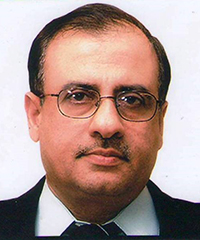
Mr. Ajoy Mehta-Municipal Commissioner of Mumbai
Mr. Ajoy Mehta took over as the Municipal Commissioner, Mumbai in April 2015. He has been instrumental in drafting the Development Plan of Mumbai for Land Use Planning for the year 2014-2034. The plan is now awaiting final clearance from the government.
Mr. Ajoy Mehta has headed the Power Sector in Maharashtra in various capacities for over 10 years. He was the Chairman & Managing Director of the Power Generation Company, Power Distribution Company besides being Principal Secretary (Energy), Government of Maharashtra. The Power Sector saw a turnaround from power deficit to becoming self-sufficient in power and the State Electricity Companies became financial robust. During this tenure in the Power Sector, he was also on the Board of various Power Companies and Committees in the country.
Mr. Ajoy Mehta had been Collector of Ahmednagar District; Director, Ministry of Agriculture, Delhi; Municipal Commissioner of Nashik.
Mr. Ajoy Mehta holds a Bachelor of Technology in Civil Engineering from Indian Institute of Technology (IIT), Benaras Hindu University and MBA in Finance from University of Strathclyde, U.K. He also has a degree in Law from Mumbai University.
Mr. Ajoy Mehta joined the Indian Administrative Service in 1984 and is presently empaneled as Secretary, Government of India.
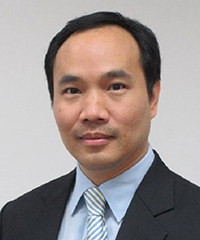
Mr. Apinetr Unakul-Strategic Director, CAT Telecom Company
Apinetr Unakul is a Director of CAT Telecom, the state telecommunications agency of Thailand, which is spearheading a national initiative on Smart Cities including linkages to IOT. He has over 25 years experience in human resource development in engineering, most recently through an innovative joint venture between Carnegie Mellon University and King Mongkut’s Institute of Technology, Ladkrabang. As founding president of the Thailand Embedded Systems Association, he has championed connecting Thai developers with universities and industry. He is Chairman of the Board of SiliconCraft and serves on the board of various Thai technology firms. He was appointed one of the first Innovation Ambassadors in the country by the National Innovation Agency. He is a strategy advisor to Thai state enterprises, leading universities and the Thailand Research Fund.
Mr. Jonathan Woetzel-Director, McKinsey Global Institute
Based in China since 1985, Dr. Jonathan Woetzel has been instrumental in building McKinsey & Company's China office. In addition to his work helping Chinese and other Asian businesses prepare for global growth, Jonathan is a director of the McKinsey Global Institute (MGI), McKinsey's business and economics research arm. He also leads McKinsey's Cities Special Initiative and is responsible for convening McKinsey's work with city, regional, and national authorities in more than 40 geographies around the world. He is a co-chair of the non-profit think tank, the Urban China Initiative—a joint venture of Columbia University, Tsinghua University, and McKinsey—that aims to develop and implement solutions to China's urbanization challenges.
Jonathan has led numerous research efforts on global economic trends, including growth and productivity, urbanization, affordable housing, energy and sustainability, e-commerce, and the economic impact of the Internet, as well as on productivity growth and economic development in China and Asia.
Jonathan's public sector work is extensive. He has advised national governments in Asia on improving the environment for foreign investors, national energy policy, and economic development strategies. He also leads work with local government authorities, having conducted more than 60 projects throughout China to support local economic development and transformation. This includes working extensively in real estate—specifically, on commercial revitalization—and advising on energy investment strategies and energy productivity and transparency, among other topics.
Jonathan works in the private sector as well, most often on topics related to corporate strategy, operations, and organization. He has served clients in industries such as energy, metals and mining, health care, telecommunications, and transportation. He supported the largest company in China in a fundamental restructuring that led to the then-largest foreign listing on the New York Stock Exchange.
Jonathan actively participates in a number of international forums and lectures at the Guanghua School of Business and the China-Europe International Business School, and is also an honorary lecturer at Jiaotong University's Antai Business School.
Published widely in both Chinese and international publications, Jonathan has written five books on China, including Capitalist China: Strategies for a Revolutionized Economy (Wiley & Sons, 2003), Operation China: From Strategy to Execution (Harvard Business Press, 2007), and One Hour China (Towson Press, 2013). He has also coauthored, with Richard Dobbs and James Manyika, No Ordinary Disruption: The Four Global Forces Breaking All the Trends (PublicAffairs, May 2015).
A US citizen, Jonathan is proficient in Mandarin, Spanish, and German.

